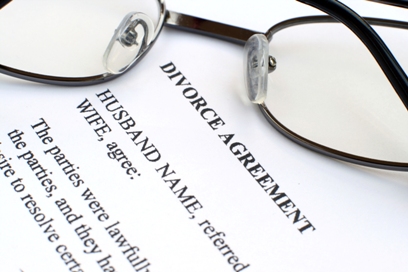
The last thing most people want to be thinking about as the New Year gets underway is splitting from their partner.
But the reality is the first day back at work after New Year’s Day is known in the legal world as Divorce Day because this is when many people decide to start proceedings.
This is a strained time, emotionally as well as financially, but sooner or later it’s necessary to start looking at the financial side of things, both to make sure your priorities are in order and to keep costs – and stress – down as much as possible.
Here are some things to consider:
Can you opt for a DIY divorce?
Every relationship is different, with some ending more amicably than others. If you can go your separate ways on relatively good terms things will be better all round. You’ll almost certainly spend less money, especially if you can opt for a DIY divorce.
A DIY divorce or dissolution (if you’re in a civil partnership) is worth considering if your finances are relatively straightforward and you’re on amicable terms. You can expect the process to take a couple of months even for a swift divorce.
Can you cover the costs?
Regardless of whether you go the DIY route or use a solicitor you’ll have to pay court costs.
Using a solicitor will bump up the overall bill by anything from a few hundred pounds to more than £30,000 plus VAT depending on how acrimonious your split is and the complexity of your finances.
How to manage your finances
The chances are one party will move out of the family home, meaning there will be two sets of bills to pay and two lots of mortgage or rental payments to cover.
Remember that if you have a joint mortgage both of you are responsible for the full monthly payments. Not keeping up with the payments could lead to your home being repossessed and your credit score being damaged. So make sure you contact your mortgage provider to discuss how you’ll manage the mortgage repayments.
Even if you don’t have your name on the mortgage you can register your interest to make sure it cannot be sold or remortgaged without you being told.
How to protect your assets
If you have joint accounts or loans with your ex-partner you are each liable for the entire debt. So you should contact your bank to help understand options for protecting your assets. If you’re worried that your ex-partner won’t agree to you taking out this money make sure you stop any wage payments going into your joint account
Seek help if it’s getting frantic
It’s in your family’s best interests to keep things civil. If you have children they will be very much affected by your divorce, finding the whole situation acutely stressful. For their sake as much as anything you should try to keep the lines of communication with your ex open.
That said, if you’re finding it increasingly difficult to speak to your partner it may be time to get help from an impartial, professional mediator. Mediators will typically charge at least £100 an hour, and you can expect to have at least three sessions.
All information accurate at time of publication
This article is provided by the Money Advice Service.










